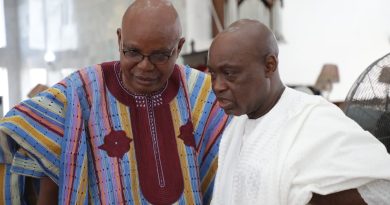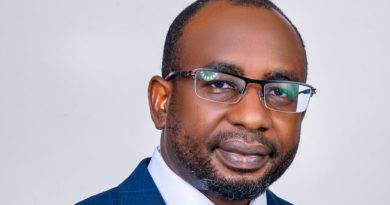Fiscal Responsibility, Imperative For Public Servants – NDDC Boss
The Managing Director of the Niger Delta Development Commission, NDDC, Dr Samuel Ogbuku, has stressed the need for public servants entrusted with the stewardship of public resources to demonstrate fiscal responsibility both in their professional capacities and personal lives.
Ogbuku, who stated this in his keynote address during a seven-day personal financial management training programme for NDDC staff in Port Harcourt, noted that it was necessary to promote financial independence and inculcate feasible and sustainable personal financial management habits among the staff of the Commission.
The training which was anchored on the theme: “Personal Financial Management Training: Strategies for Eliminating Debt and Achieving Financial Freedom,” covered essential aspects of financial management, including psychological barriers to financial planning, cash flow management, money mindset, investment planning, and debt control.

Ogbuku said that the initiative was borne out of the need to address growing financial challenges among the Commission’s staff that called for equipping them with the requisite skills and knowledge that would ensure their financial stability and freedom from debts.
The NDDC Chief Executive Officer noted that financial instability not only affects personal well-being but also impacts productivity and organisational integrity, stating that financial independence does not happen by chance but required discipline, knowledge and healthy financial habits.
“That is what this training is all about; giving you the tools and strategies to make those choices, to take control of your financial destiny,” he said.
The training Ogbuku said, was a critical facet of the NDDC’s Rewind to Rebirth initiative which was aimed at recalibrating the Commission’s engagement with the Niger Delta region.
“By fostering a financially literate and resilient workforce, we are better positioned to drive sustainable development and effectively implement our intervention strategies in the region. By investing in your financial literacy and empowerment, we are not only enhancing your personal well-being but also strengthening the NDDC’s capacity to fulfil its mission,” he said.
In his welcome address, the Executive Director Finance and Administration, Alabo Boma Iyaye, explained that the training programme was meticulously designed to provide the NDDC staff with the knowledge and tools to take control of their finances and eliminate debts.
He said: “Your financial health is integral to our success as an organisation dedicated to driving sustainable development in the Niger Delta region.”
The Executive Director said one of the reasons for the training was due to the incessant death of staff members recently which had been attributed to cardiac related issues that may have arisen from pressure from thinking due to loans they took and were unable to pay back.
He advised staff not to spend recklessly by managing their funds prudently and not to go into unhealthy competition with each other and be content with their income.
He also advised staff to have priority by setting achievable goals and work towards them.
He further advised staff to plan for retirement while still active in duty as it would be of great benefit in the future.
Giving a lecture on health, Chief Executive Officer of Save A Life Mission Hospital, Dr Richard Okoye emphasised the importance of good health in the life of workers, advising that it should be taken very seriously.
He said further: “Money is good but when your health is down, you can’t enjoy the money.
He harped on the need for regular check-ups on health issues which if left to deteriorate to a certain level, money would o longer save the situation.
“If our health is not properly taken care of and it gets bad to a certain extent, it can lead to disastrous consequences,” he warned.
Seledi Thompson-Wakama
Director, Corporate Affairs
August 17, 2024.




